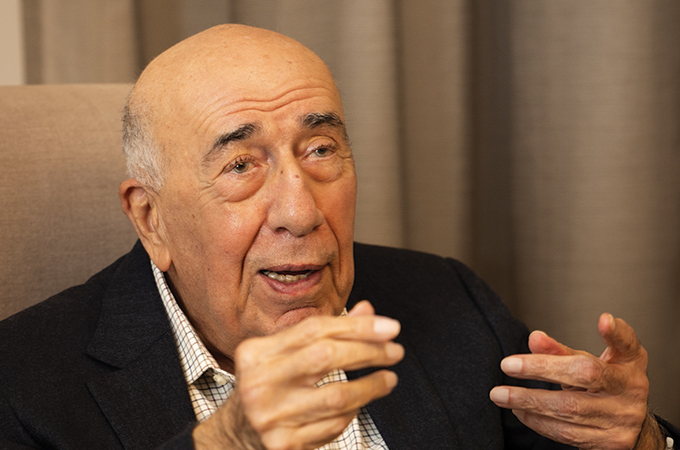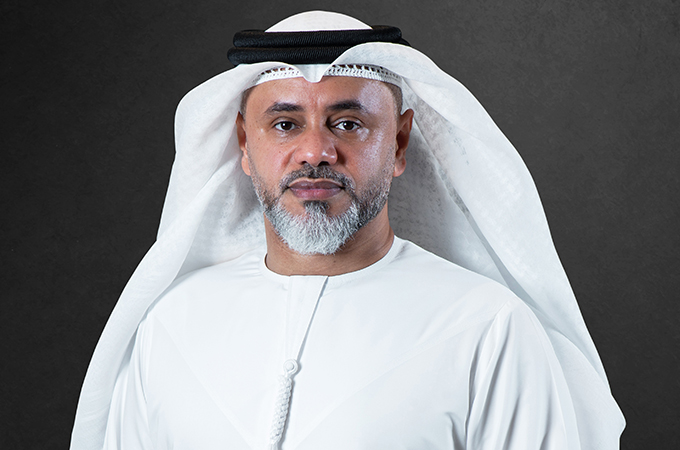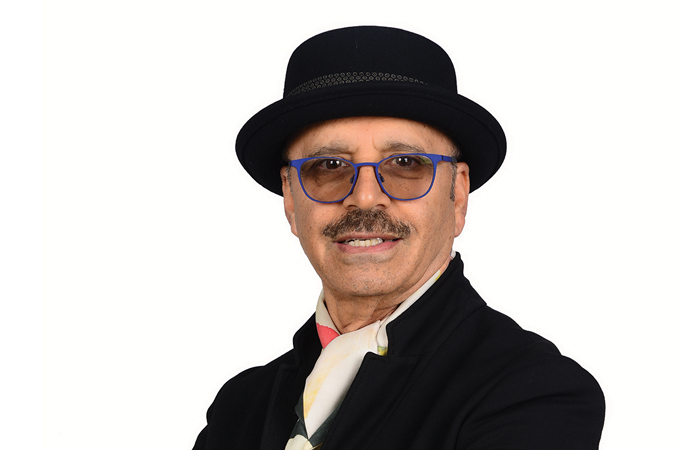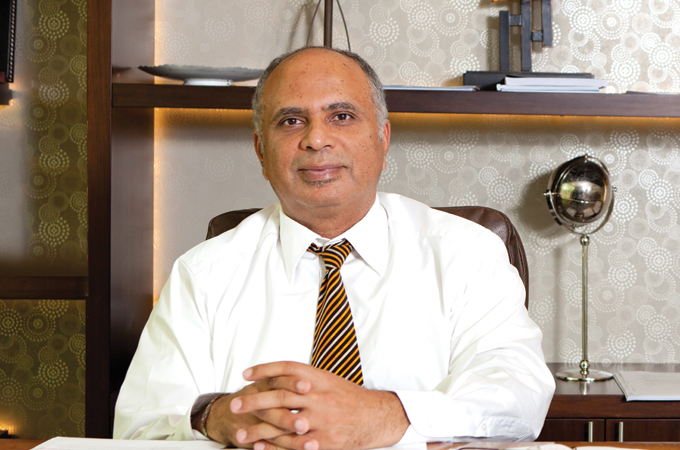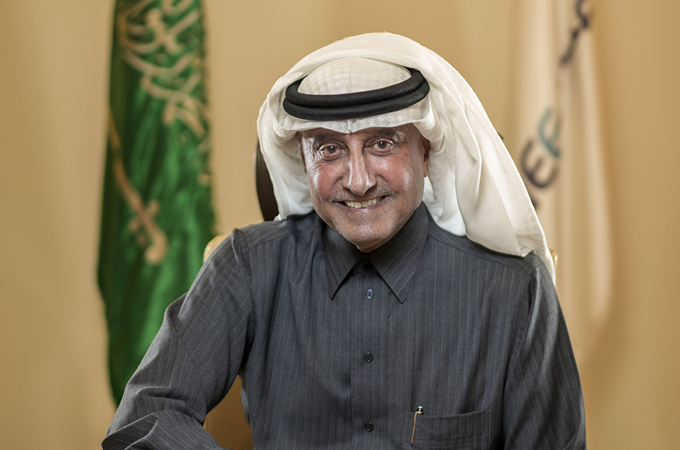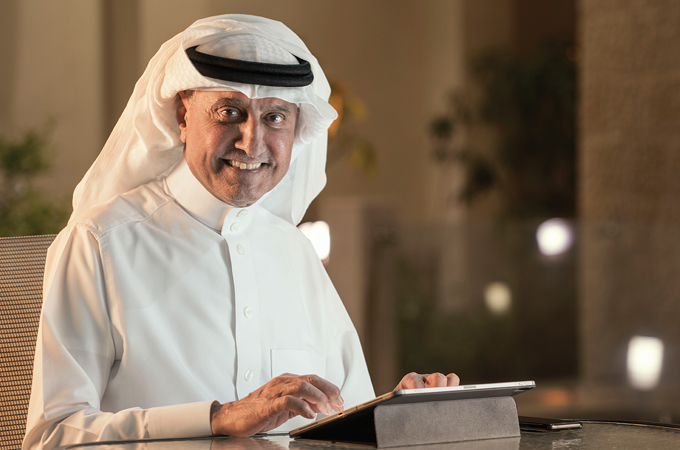Winter 2023
Taking up the challenge of running a not-for-profit historic hospital in Bahrain as a mission calling, Dr George Cheriyan has led from the front to rejuvenate the American Mission Hospital’s eco-system and to take the healthcare pioneer on a new futuristic path. His brainchild, the King Hamad American Mission Hospital, will set global standards in healthcare, says the visionary CEO in conversation with Sree Bhat
Private healthcare in the region received a huge shot in the arm in January with the inauguration of the King Hamad American Mission Hospital (KHAMH), a high-tech, patient-centric hospital.
The swanky, purpose-built 125-bed multi-specialty hospital comes from the bouquet of American Mission Hospital (AMH), an organisation with a legacy of 120 years in Bahrain and the Gulf region.
The hospital, inaugurated under the patronage of His Majesty King Hamad by His Royal Highness Prince Salman, Crown Prince and Prime Minister, is not only a new jewel in the crown of AMH, but is also a landmark in Bahrain’s healthcare history.
And it was truly a ‘crowning glory’ moment for Dr George Cheriyan, the Corporate Chief Executive Officer and Chief Medical Officer of AMH; the fulfilment of his decade-long dream and tireless efforts.
The visionary baby doctor (neonatal) has delivered a splendid masterpiece for Bahrain’s private healthcare, a facility that is of global standards.
A satisfied Dr Cheriyan says: “The new hospital is the culmination of a dream that started more than a decade ago and is a significant step in the new AMH’s journey towards providing global standards locally.
“The hospital stands here today only because of the support of His Majesty the King, HRH the Crown Prince and Prime Minister, and the government and its various agencies, who have helped make this a national project,” he says in gratitude.
There’s palpable excitement, contentment and assurance as Dr Cheriyan takes you through the events that led to the building of the hospital and his plans for the complex. “This is a futuristic smart hospital, that is technology-enabled to create a holistic healing environment that extends beyond the four walls of the hospital. KHAMH is built on the concept of the future of health with the idea of wellness and preservation of health.
“KHAMH is more than a hospital”, declares Dr Cheriyan. “It is a part of a larger healthcare eco-system that will attract worldwide talent which will contribute substantially to Bahrain’s overall healthcare strategy in the years to come.”
AMH IN GENES
One would call it providential that a boy born in the American Mission Hospital in Kuwait in 1954, would helm AMH Bahrain and take the hospital into a new era of healthcare almost six decades later.
Dr Cheriyan’s father was a finance executive at Kuwait Oil Company and mother a nurse at the AMH Kuwait. “I have very happy memories of growing up in an idyllic environment in Kuwait,” says Dr Cheriyan, who studied in the company school up to third grade.
At the age of eight, he was sent off to a boarding school in Ooty, India. “Though I was visiting India during holidays, it was a completely foreign country to me,” he says.
However, the boarding school experiment didn’t last long since he soon fell sick with hepatitis and was left in the care of his grandfather, himself a well-known physician who knew four different disciplines – Allopathy, Homeopathy, Ayurveda and Unani. He was a physician for the Travancore Cochin Royal family too. George continued his studies at the Infant Jesus School in Kollam and completed his high school there.
It was then time to decide on the professional course he would take. “Since I was good in maths, my father automatically thought I will go into engineering. However, I have my mother’s heart and grandpa’s genes that naturally took me to medicine. Also, communicating with people was my passion and in healthcare it’s a great asset to have.”
Dr Cheriyan graduated in medicine from the TD Medical College in Alappuzha (Alleppey) in 1977. He also found his life partner there, batch mate Dr Darley. After a year’s internship and some months of work at a mission hospital, the couple got married in 1978.
With a view to expanding his knowledge and horizon, together with Dr Darley, he went to the UK for post-graduate studies in pediatrics and worked at several major hospitals in London as part of his specialist training.
His sub-specialisation in Neonatology was done at the Hospital for Sick Children in Toronto with time also spent in Boston and Michigan. His two sons were born during this time, the first son in the UK and the second in Canada.
The skilled doctor now had quite a few job opportunities in hand. One of the most interesting ones was a three year research grant at the NIH in Washington DC. However, since kids were at school and his wife wanted to resume working, the young family’s interest overshadowed the ambitions of the doctor. He decided to return to the UK and join the National Health Service (NHS) as a Paediatric and Neonatal Consultant.
NEW JOURNEY
The next big career twist came after five years in the NHS. “I decided to take a sabbatical year with the intention of working in Washington DC with my professor there. But unfortunately due to his health reasons the plans had to be put on hold.
“Out of the blue, someone offered me a job in Saudi Arabia at Aramco. I was initially reluctant but was persuaded to visit for three weeks and see for myself. This started a new journey and of much revelation,” narrates Dr Cheriyan.
“I was pleasantly surprised when I arrived there. It was a standard American hospital in an American community in the middle of the desert with amazing facilities. I decided to stay on for a year and convinced my wife, who was already practising in the UK, to come over for holidays there. We had all the facilities at the complex – swimming, sports, entertainment and, above all, the sun – and the kids loved it. I also used to come home early and could spend more time with family.
“For my children it was like Disneyland every day and they were reluctant to go back to London. Ultimately, we took the decision to stay back in Saudi Arabia – the three-week trial run lasted 18 years and resulted in a fruitful career,” he recounts.
Dr Cheriyan was the head of neonatal medicine at Aramco and also head of quality for the last five years of his work there. He also had the opportunity to pursue both quality and management courses at Harvard, thanks to Aramco schemes, which stood him in good stead for the future.
NEW BEGINNING IN BAHRAIN
It is believed that every 20 years or so, someone comes to your life or something happens that changes the life’s course for you and takes you on a new path. That happened with Dr Cheriyan after 18 years at Aramco.
“While I was in Aramco my life began to change in so many different ways. When the kids grew up, they went to the US for high school and both of them studied medicine and became doctors. My wife and I wanted a change, and that change we were seeking was not materialistic; it was a calling for missions, to serve in areas of need.
“I was very fortunate in life; I grew up in an affluent setting and got my training at top hospitals in the world and was successful in my career too. I felt that I had to now give back to the society, and started actively considering mission work, either in India or Africa,” notes Dr Cheriyan.
And that’s when the call from AMH came through a colleague of his wife. “Initially, I looked at this job and the hospital and I said to myself what am I going to do there? Because I’ve been running a big intensive care unit and AMH is comparatively a small hospital, I struggled a lot before I took the plunge,” admits Dr Cheriyan, revealing that his wife had a huge role in making the decision.
“The move was not about salary or benefits, it was about a mission and a purpose, to create a healthcare system that was equitable to all – the rich and the poor and in between. So that was the idea behind my joining AMH,” he affirms.
Thus, Dr Cheriyan became the first non-American Chief Medical Officer of AMH in its 120 years history and a new voyage for the doctor and the historic hospital began.
Dr Cheriyan, who took over the reins of AMH in 2009, saw the work cut out for him from day one.
“It became abundantly clear to me as soon as I came here that a lot of aspects of the actual physical infrastructure was old. I knew I had to attack on two fronts straightaway – addressing the ageing infrastructure and changing the strategic plan. The operations of an old Mission Hospital had to be aligned with the most modern developments in healthcare,” he says.
“The strength of AMH was two-fold: The trust people had in the hospital and its charitable mission which allowed the average person to get treatment at the hospital. However, the physical infrastructure of the hospital did not allow it to develop purely because of location, lack of parking, and old buildings. Structurally not much could be done at the Manama location,” he continues.
Dr Cheriyan is happy that within a short period of his assuming office, he could build the leadership team he wanted and lay the foundations of a modern, quality healthcare system.
“If you break down healthcare, you will quickly realise that 95 per cent of the healthcare needs of any individual at any age is primary care. You get cough, cold, fever, chest pain, etc. that can be dealt with in an outpatient setting. Only 5 per cent of the patients will require complex care in a hospital. Our future expansion is based on this premise.
“So, we focused on developing the ambulatory healthcare services of AMH. Our strategy was very simple; Manama was getting crowded, so let’s go closer to where people live and provide them the same high standard of care of AMH at the same prices,” explains Dr Cheriyan.
The first such clinic was opened in Amwaj in 2014. AMH had a small clinic in Saar from 2000 and in 2016 a bigger ambulatory clinic was opened in Saar in a new location with all the latest equipment and labs for a 24-hour service. The third facility came up in Riffa in 2018.
“Our strategy to provide excellent facilities closer to where people lived is highly successful,” Dr Cheriyan reveals.
“However, our biggest drawback still was complex care for which we still had to refer patients outside. This was because we just couldn’t have infrastructure here in the Manama hospital. The new multi-speciality hospital in A’Ali will address this.”
“Looking back, it’s been the most satisfying 13 years of my whole medical career. If you ask me, I would not trade this for anything else in my life. How God really allowed me to turn this place (AMH) around, it’s marvelous,” he confides.
THE FUTURE
Men of mettle don’t rest on their laurels. The veteran doctor’s blueprint for KHAMH has many layers and global ambitions.
“My vision for AMH is to be a leader in providing innovative care, not just in the GCC but globally. I’m quite confident that with the staff that we have, we can set the standards that others will follow.”
He elaborates that a major impact always starts in a small way and then spreads, just like when a pebble thrown into still water creates ripples. “What AMH is doing is creating the ripple, an impact in the community by providing high-quality care for people for everyone – those who can afford it and those who can’t afford it too.
“Once the standard of AMH is elevated to a point where the world begins to take note of it, it will create great positive vibe for the country and its healthcare system, catapulting it into a global medical hub. That’s my dream for AMH and Bahrain,” he declares.
Dr Cheriyan adds: “If you ask me what’s your mission, in one sentence, it is to keep people healthy and out of hospital; it’s wellness, not illness, that should be the focus of healthcare.”
The veteran doctor is now the darling of the not-for-profit healthcare system globally and regularly receives invites to attend conferences worldwide. With AMH Bahrain becoming a model in the study of mission hospital rejuvenation, his advice is sought by various organisations.
Dr Cheriyan is a member of a global group of about 80 experts called Future of Healthcare (FoH), which dwells on the innovations that will shape the future of the industry. He is the only one from the Middle East in the group, which thinks about the big picture of global healthcare and advises the WHO, the UNHCR and other multilateral institutions.
What is his advice to starry-eyed young doctors coming into the profession?
“If you look at ancient Indian Vedas, the first thing they say about healing is that the physician should be the humblest person on Earth. We are humbled by the unique privilege we are given, to touch and heal a body; that is a privilege only a physician has,” he says.
He quotes Mother Teresa who said, ‘The hands that heal are holier than the lips that pray’, and warns that the hands better be holy, because that is what healing is all about.
“It is the healing hands of a physician that have profound power. For me, being a baby doctor, I have held thousands of babies in my hands. When you take a sick baby in your hands, it is so profound. I always say this, your hands are where the healing is.
“Both my sons are physicians, and I told them very early on in their career, you cannot cure everything, but you can care for everybody. You could be losing a patient because of cancer or terminal illness, but you can care for that patient, make dying dignified and comfortable in the end,” he explains.
“Unfortunately, today’s healthcare is all about money,” he rues. “I know, as an individual, I can’t change the system; but I can change what I have influence on. I was very fortunate in my life that I never had to work for a for-profit healthcare facility. I will never ever want to seek profit from the illness of another human being,” he stresses.
CHANGES IN HEALTHCARE
On the major changes the healthcare system will see in the near term and long term, he says the big change will be that a lot of care will shift from the four walls of a hospital to the four walls of home. The digitalisation and innovative technologies will allow for follow-up treatments at homes, rather than sick patients coming to the hospital.
Dr Cheriyan is a great believer in preserving health rather than treating illnesses. “One has to treat health as an investment; it is the health that has to be managed and not illness and there is going to be a complete shift in how the health of healthcare is restored.
“Today, we speak of sickness care; the future is preserving health. You won’t need to spend a lot of money in the hospital receiving expensive treatment. The investment will be upfront in preserving health, individually and population-based,” he emphasises.
It’s natural for us to ask him what are his plans for himself in the future ...
“For me, personally, I’ve been very fortunate in life to have gotten a lot and I want to keep on giving as much as I can. I want to see the organisation grow and succeed and, with it, all the people involved. I always say, when the tide comes, it lifts all the small boats and the big boats as well. That’s the impact I want to create, both in the public and private healthcare sectors,” he concludes.



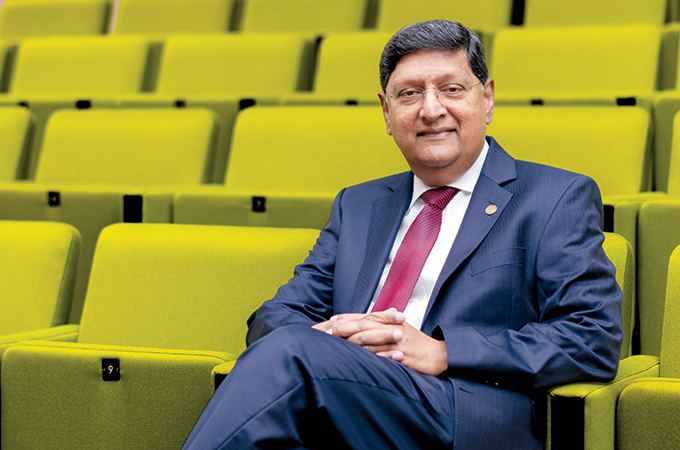
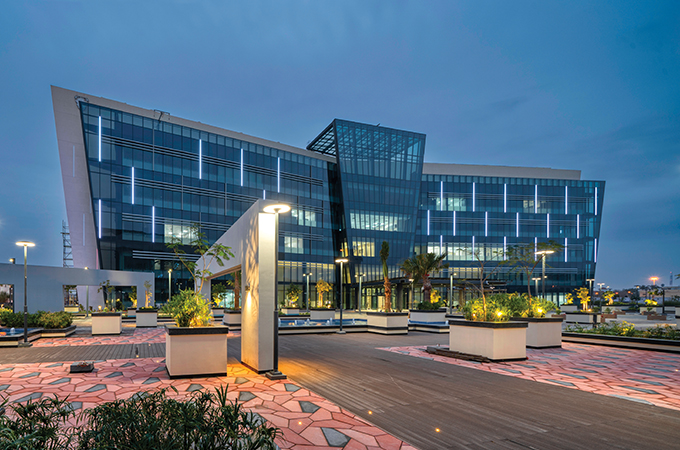

.jpg)
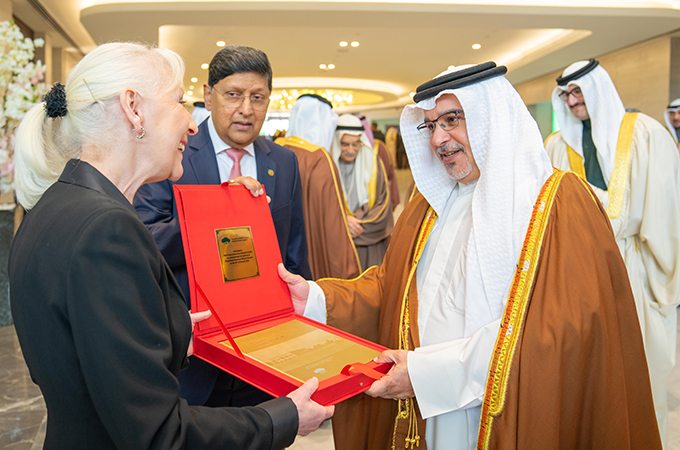
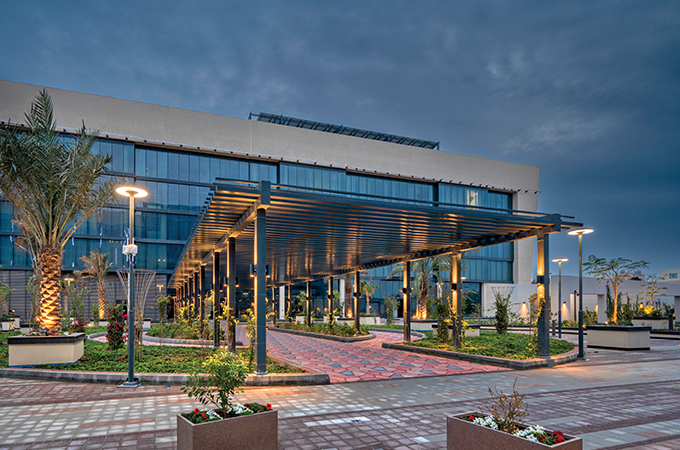
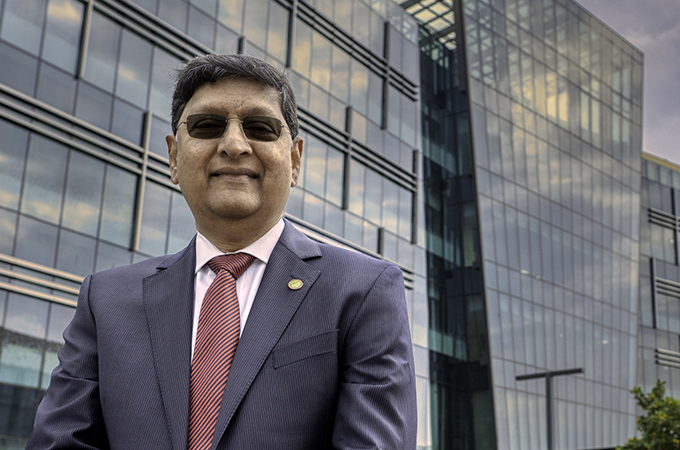
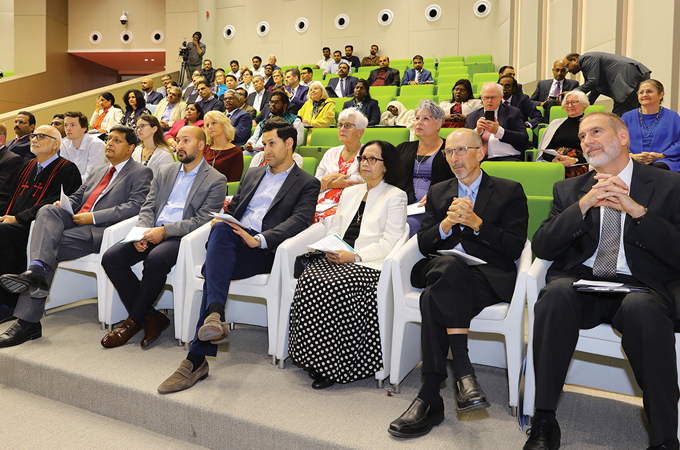

.jpg)
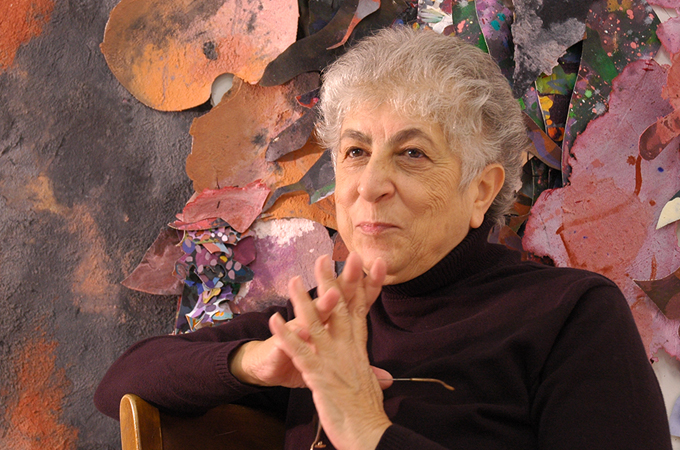
.jpg)
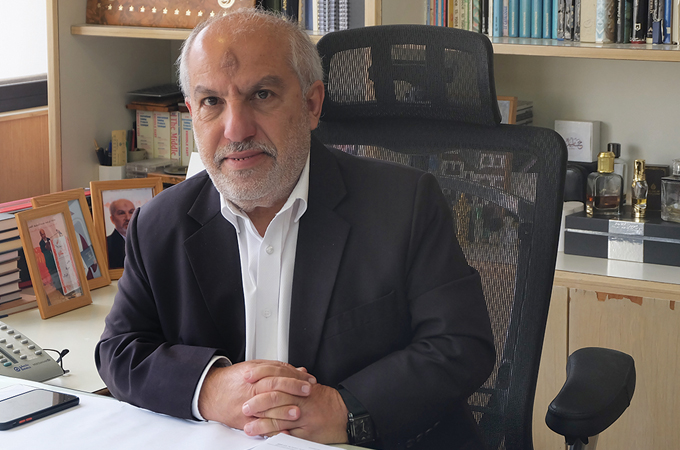
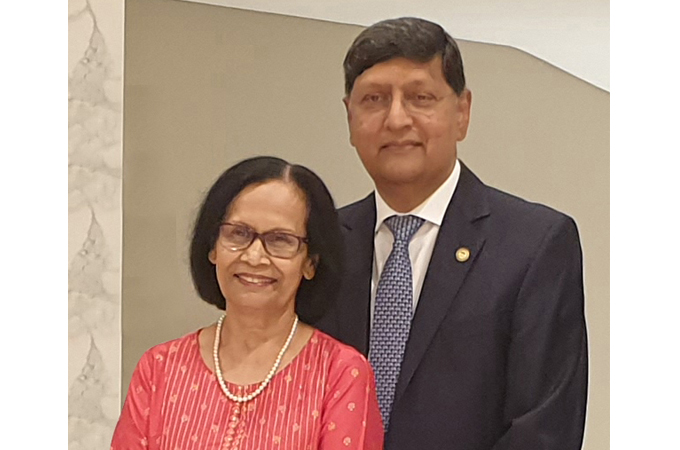
 B.jpg)
